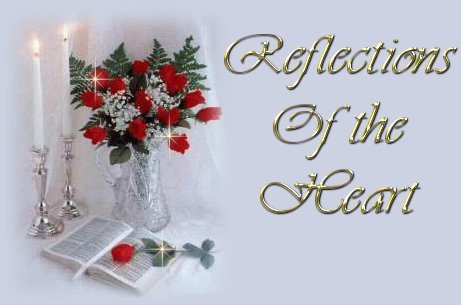

By the Rev. Lee Woofenden
Bridgewater, Massachusetts, May 20, 2001

  
Isaiah 29:9-14 A sealed scroll for blinded readers
Be stunned and amazed; blind yourselves and be
sightless. Be drunk, but not from wine; stagger, but not from beer. The
Lord has brought over you a deep sleep. He has sealed your eyes, you
prophets; he has covered your heads, you seers.
For you this whole vision is nothing but words sealed
in a scroll. And if you give the scroll to someone who can read, and say
to him, "Read this, please," he will answer, "I can't; it
is sealed." Or if you give the scroll to someone who cannot read,
and say, "Read this, please," he will answer, "I don't
know how to read."
The Lord says: "These people come near to me
with their mouth and honor me with their lips, but their hearts are far
from me. Their worship of me is made up only of rules taught by human
beings. Therefore once more I will astound these people with wonder upon
wonder; the wisdom of the wise will perish, the intelligence of the
intelligent will vanish."

Revelation 5:1-10 The scroll and the Lamb
Then I saw in the right hand of him who sat on the
throne a scroll with writing on both sides and sealed with seven seals.
And I saw a mighty angel proclaiming in a loud voice, "Who is
worthy to break the seals and open the scroll?" But no one in
heaven or on earth or under the earth could open the scroll or even look
inside it. I wept and wept because no one was found who was worthy to
open the scroll or look inside.
Then one of the elders said to me, "Do not weep!
See, the Lion of the tribe of Judah, the Root of David, has triumphed.
He is able to open the scroll and its seven seals."
Then I saw a Lamb, looking as if it had been slain,
standing in the center of the throne, encircled by the four living
creatures and the elders. He had seven horns and seven eyes, which are
the seven spirits of God sent out into all the earth. He came and took
the scroll from the right hand of him who sat on the throne. And when he
had taken it, the four living creatures and the twenty-four elders fell
down before the Lamb. Each one had a harp and they were holding golden
bowls full of incense, which are the prayers of the saints. And they
sang a new song:
"You are worthy to take the scroll and to open
its seals, because you were slain, and with your blood you bought us for
God from every tribe and language and people and nation. You have made
us to be a kingdom and priests to serve our God, and we will reign on
the earth."

The Heavenly City #252-254 The Bible: a divine revelation
Since the Bible is a divine revelation, every single
part of it is divine. Anything that comes from the divine could be no
other way. Everything that comes from the divine goes down through the
heavens all the way to people on earth. In heaven it is adapted to the
wisdom of the angels there, and on earth it is adapted to the
understanding of the people there. So the Bible has an inner, spiritual
meaning for angels and an outer, material-level meaning for people on
earth. That is why our connection to heaven happens through the Bible.
The Bible's real meaning can be understood only by
people who are enlightened. And only people who love and believe in the
Lord are enlightened, since their deeper parts are lifted up into
heaven's light by the Lord.
We can understand the Bible's literal meaning only if
we have a religious philosophy that an enlightened person has obtained
from the Bible. The literal meaning is adapted to people's
understanding--even the understanding of simple-minded people. So we
need a religious philosophy from the Bible to give us light.

  
Then I saw in the right hand of him who sat on the
throne a scroll with writing on both sides and sealed with seven seals.
And I saw a mighty angel proclaiming in a loud voice, "Who is
worthy to break the seals and open the scroll?" (Revelation 5:1, 2)
Much of the Book of Revelation is concerned with
judgment. Those who have turned away from God are judged for hell, and
those who have followed God are judged for heaven. Chapter four, which
we read last week, and chapter five, from which we read today, set the
stage for that judgment. In chapter four, we are given a vision of the
Lord God sitting on a throne in heaven, presented as a great King who
will also become the Judge of all. Chapter five focuses on the book, or
scroll, with seven seals. In the following chapters, as each seal is
broken, one figure and event after another emerges as part of this great
judgment.
Next to the divine figure on the throne, the judgment
centers on the sealed book, which is a clear symbol of the Word of God,
from which all truth and all judgment comes. This morning we will take a
closer look at the Word of God as we continue our three part series on
the essential teachings of the New Church.
The fact that the Word of God was sealed up was not
new. Back in Old Testament times, the prophet Isaiah referred to his own
vision--which is part of the Word of God--as "nothing but words
sealed in a scroll." And he went on to tell us how people could not
read that scroll, either because it was sealed, or because they did not
have the ability to read.
Now obviously, the words describing Isaiah's vision
were available to read; it is very unlikely that they were kept
literally sealed up so that no one could read them. No, Isaiah was
talking about the seal that is placed on the Word of God in the minds of
people who cannot understand spiritual truth because they do not want to
listen to it nor obey it, because they do not love it. "These
people come near to me with their mouth and honor me with their
lips," the Lord says through Isaiah, "but their hearts are far
from me."
This is a critical issue to understand about the Word
of God. Some have complained that the Bible is not written in plain
language; that it is hard to understand. Why doesn't the Bible just tell
us plainly what we are supposed to believe and do?
The fact is that the Bible does teach us
plainly what we are supposed to believe and do. But if we are not
interested in living in the Lord's way, we will not see or understand
these things even when they are right in front of us, plainly visible.
Further, if the Bible consisted entirely of plain teachings about the
Lord's love and wisdom, and how we should live unselfish, spiritual
lives devoted entirely to the service of the Lord and our fellow human
beings, most of us, as we start out in life, would never read it in the
first place. We would see it as impractical, unrealistic, ethereal--and
probably very boring.
So the Bible reaches out to us right where we are in
vivid, concrete stories that we will read and hear, and that will stick
in our minds. Adam and Eve. Noah and the ark. Moses and the burning
bush. David and Goliath. Jonah and the whale. These are simple,
unforgettable tales that have become a part of the consciousness of our
society.
And yet, when we start examining the Bible stories
closely, we find many parts that we don't understand, or that seem to
contradict other parts. The Bible says that God is love (1 John 4:8,
16), and yet we read of God commanding the slaughter of whole cities,
sometimes even the women and children, and even the livestock! The Ten
Commandments say that God "visits the iniquity of the fathers upon
the children unto the third and fourth generation of them that hate
him" (Exodus 20:5), and yet in Ezekiel, the Bible states with
crystal clarity that "the soul who sins is the one who will die.
The son will not share the guilt of the father, nor will the father
share the guilt of the son" (Ezekiel 18:20).
As we encounter these and many other conundrums found
in the Bible, the simple trust in the Bible as God's teacher of truth
that we may have developed as children if we were brought up in the
church gives way to many questions that we must struggle with if we are
to continue to accept the Bible as God's Word in our adult lives. And in
fact, millions of people have abandoned the Bible and the Christian
Church, not because they are evil, ungodly people, but because they
simply can't reconcile many of the teachings and stories of the
Bible--not to mention the use that some Christians make of its
teachings--with a decent, humane life of respect for all the people of
this earth.
To continue the saga of the Evangelical "cult
site" from last week, I was brave or foolhardy enough to send the
webmaster of that site a link to the online version of last week's
sermon. In that sermon I mentioned our exchange, and went on to assert
the non-Biblical nature of some of the teachings he espoused, and the
Biblical basis of New Church teachings.
And to give credit where credit was due, he actually
did follow the link and read most of the sermon. Needless to say, he
didn't like it very much! And he sent me a message saying just why
he didn't like it. Among other things, he brought up a common charge
brought against us by Fundamentalists and Evangelicals. Though he didn't
state it exactly this way, the charge is that by following Swedenborg's
teachings, we "add" to the Bible in a way that is forbidden in
the final verses of Revelation, and that these "additions"
invalidate our teachings because they are not based on the Bible.
Naturally, I couldn't resist replying. And on this
issue, I pointed out to him that the doctrines he was teaching as
"essential to Christianity" were also taught by particular
human beings at particular times in the history of Christianity. We can
trace their origins back to a time before which they do not appear in
the Christian literature, or appear only as rather vague foreshadowings
of the doctrine that was later stated more specifically.
In particular, this is true of the Trinity of Persons
in God, which was first stated as a required belief for all Christians
in the creed produced by the Council of Nicea in 325 AD. This Council
was called by the emperor Constantine in order to form a faith that
would become the state religion of the Roman Empire. So the division of
God into three Persons was done as part of an effort to make
Christianity serve the worldly use of empire-building. From that
human-derived doctrine flowed all the later corruptions of Christian
belief.
What does this have to do with the New Church view of
the Word of God--which is the second essential teaching of our church?
Simply this: those who are looking to the Bible in order to justify
their own evil actions, driven by a desire for power and worldly wealth,
will not see any of the truth in the Word of God, but will instead
corrupt even the truth that is plainly visible in the literal meaning
into false teachings that support their motives and actions. Our eyes
are opened to the true meaning of God's Word only to the extent that we
go to the Bible because we want the truth for its own sake, and to use
it in correcting our own lives so that we can become better, more
loving, and more Christ-like people.
Now, I am not accusing everyone who holds to false
doctrines, and attributes these doctrines to the Bible, of being greedy
and power-hungry. I suspect that the webmaster I am conversing with is a
decent human being who truly believes he is supporting and defending
genuine Biblical Christianity. Once false teachings become popular, and
widely taught and accepted, they take on a life of their own. Many good
and sincere people will adopt them and even defend them, believing they
are serving God and following God's Word.
We, too, believe in the Bible as God's Word. And
however much we may disagree with the teachings of many so-called
"Bible-based Christians," we at least have to give them credit
for their willingness to stand up for what they believe the Lord teaches
through the Bible. Our shared devotion to the Bible is one link we have
with them.
Still, however much they may think they are simply
following the plain teachings of the Bible, their view of the Bible is
only as clear as the doctrines, or religious philosophy, with which they
approach the Bible. And whether or not they know which human theologians
and creeds these doctrines came from, everything they read in the Bible
will tend to support in their mind the truth of their own particular
religious tradition.
This is why Swedenborg says, in our reading from The
Heavenly City, that "we can understand the Bible's literal
meaning only if we have a religious philosophy that an enlightened
person has obtained from the Bible." Of course, for us, the primary
"enlightened person" that we turn to is Emanuel Swedenborg
himself. Evangelical Christians, if they go to the roots of their faith,
must turn to various teachers and theologians in their tradition,
sometimes going back to early Protestant theologians such as Luther and
Calvin. And their understanding of the Bible is only as good as the
doctrines these teachers and theologians have handed down to them.
All of this is in accord with the New Church view of
the Bible. We do not see the Bible as some sort of a mechanical
drawing--a blueprint of sorts in which we simply have to accurately
follow the angles and dimensions given and we will come up with a
building that matches the designer's original specifications. Instead,
the Bible, as the Word of God, is a living means of communication
between God and human beings here on earth. It is where God speaks to us
in a living voice through the fixed and divinely arranged words and
stories on the page. It is where we can listen, each at our own level
and from our own needs.
The Bible does not say the same thing to every person
who reads it because each person who reads it is in a different state of
mind and heart, and needs a different part of the message in order to
take the next steps. One person may be caught up in all sorts of illegal
and destructive behavior, and need a strongly worded command to repent
or be punished. Another may be caught in the throes of depression and
despair, and need comforting words of encouragement, and the assurance
of God's eternal love and compassion. Another may be spiritually
thirsty, seeking answers to deep and mystifying questions, and need the
crystal clarity of teachings that shine through from the inner,
spiritual truth of the Bible.
The Bible speaks to us in all of our states of mind,
from the lowest and most corrupt to the highest and most sublime. For
those who are scraping the bottom of life's barrel, the Bible speaks in
tough, hard-hitting language and stories, in which the deeper love of
God is sometimes so deeply hidden that God appears to be angry and
wrathful, instead of being pure love. For those who have progressed well
along on the spiritual path, so that their hearts and minds are open to
the thoughts of the angels, the Bible becomes a book in which the
literal meaning is almost transparent, the deeper love and wisdom of God
showing through everywhere--even in places where other people see only
death and destruction.
Yes, the Bible is God's Word because through it the
Lord speaks to us at every stage of our lives, and in every state of
mind and heart. For those just starting out who need plain, simple
truths, the plain literal meaning of the Bible has everything necessary
to find salvation through faith in God and living according to God's
commandments. For those farther along the spiritual path, the Lord has,
in our times, opened up the deeper meanings in the Bible through the
"correspondences," or living symbolism, taught in Swedenborg's
writings.
Does this "add" to the Bible? No. It simply
opens up what was already there. To use a memorable image from True
Christian Religion #192, the Bible is like a "chest made of
jasper, lapis lazuli, amianthus (also called mica), or agate, but
containing rows of diamonds, rubies, sardonyxes, oriental topazes, and
so on." The literal sense is the chest, which is quite beautiful
with its semi-precious stones, and which also protects its more precious
contents.
The wonderful promise of the New Church is that if we
love and believe in the Lord, and go to the Bible to learn how to live
as the Lord wants us to, we will be able to open up that treasure chest,
and find spiritual riches beyond anything we have ever imagined. Amen.

Background Courtesy of:

Music: Prism: Color of
Love
© Bruce DeBoer

Rose Icon Image Courtesy
of:

Rose Icon Photo Tube
Courtesy of:

|